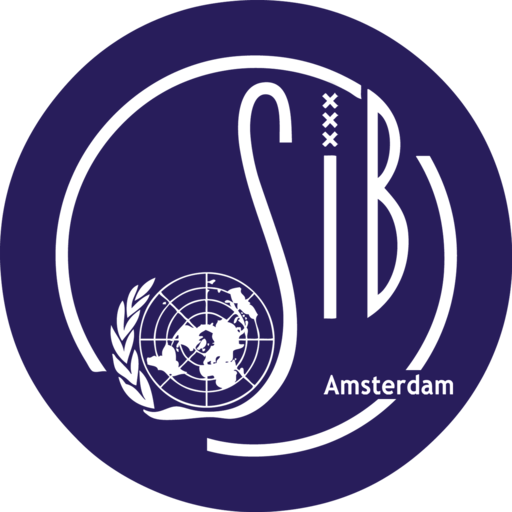Report: Masterclass on Geopolitics in the Arctic
On April 12, SIB-Amsterdam organised a masterclass on Geopolitics in the Arctic Sea headed by retired Professor Louwrens Hacquebord of the University of Groningen. Professor Hacquebord has represented the Netherlands in Arctic Affairs and was a former council member of the International Arctic Science Committee (IASC).
 Professor Hacquebord started with clarifying that the Arctic and the Antarctic are opposite poles not only geographically, but also in their respective legal frameworks. Whereas the Antarctic is a continent surrounded by oceans, the Arctic is an ocean surrounded by continents. This means that the Arctic is subject of the Law of the Sea, which has profound legal and political implications. To claim territory the five Arctic nations – Russia, the USA, Canada, Norway and Denmark – try to prove that the territory in the Arctic sea they claim is geographically part of their continent. This leads to many overlapping territorial claims.But why is claiming territory so important? Due to climate change ice caps are melting which gives rise to two possible opportunities; the drilling for natural resources and the opening up ofa sea route that is considerably shorter than some current shipping routes. The former was inter alia fuelled by the US Geological Survey of 2000, which estimated that there were large basins of natural resources including oil and gas. According to professor Hacquebord there has been a tendency to move to offshore drilling but so far these activities have not taken great flight.There are several reasons for this including the low oil prices of recent months, meaning that drilling operations in the Arctic simply do not pay off. Shell for instance abandoned its drilling activities last summer when prospects got less good. There are also other risks attached to the exploration of resources in the Arctic. Because of climate change there more storms and less ice caps to dampen waves resulting in higher, more dangerous waves. Another thing that makes the Arctic technically challenging are seismic hazards.
Professor Hacquebord started with clarifying that the Arctic and the Antarctic are opposite poles not only geographically, but also in their respective legal frameworks. Whereas the Antarctic is a continent surrounded by oceans, the Arctic is an ocean surrounded by continents. This means that the Arctic is subject of the Law of the Sea, which has profound legal and political implications. To claim territory the five Arctic nations – Russia, the USA, Canada, Norway and Denmark – try to prove that the territory in the Arctic sea they claim is geographically part of their continent. This leads to many overlapping territorial claims.But why is claiming territory so important? Due to climate change ice caps are melting which gives rise to two possible opportunities; the drilling for natural resources and the opening up ofa sea route that is considerably shorter than some current shipping routes. The former was inter alia fuelled by the US Geological Survey of 2000, which estimated that there were large basins of natural resources including oil and gas. According to professor Hacquebord there has been a tendency to move to offshore drilling but so far these activities have not taken great flight.There are several reasons for this including the low oil prices of recent months, meaning that drilling operations in the Arctic simply do not pay off. Shell for instance abandoned its drilling activities last summer when prospects got less good. There are also other risks attached to the exploration of resources in the Arctic. Because of climate change there more storms and less ice caps to dampen waves resulting in higher, more dangerous waves. Another thing that makes the Arctic technically challenging are seismic hazards.
However this does not mean that the scramble for the Arctic is not completely ever yet. Mainly Russia and Canada are building up military presence in the Arctic. Russia in particular is refurbishing old military bases and conducting Special Forces exercises in its high North. According to professor Hacquebord the Russians are aiming to utilise new shipping routes to more easily provide China with oil and gas, especially since Europe is consuming less of the Russian resources since the invasion in Ukraine. In order to do so the country is currently constructing fourteen ice breaker oil tankers.
The Arctic sea thus remains a hot topic and the masterclass gave wonderful insights into the main dynamics. We would like to thank professor Hacquebord and everyone that joined us for his/her participation!
